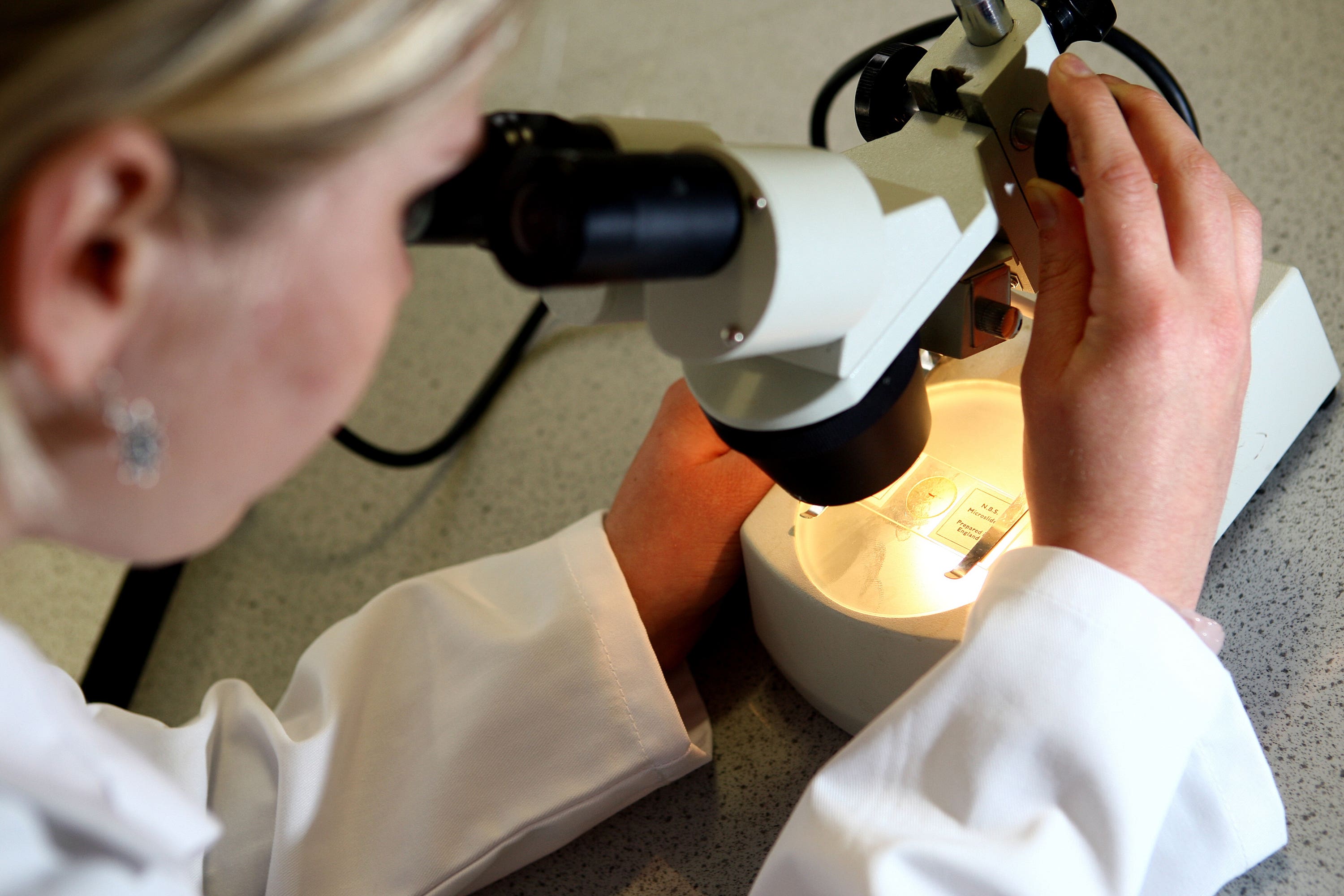HIV can be completely eliminated in laboratory using gene editing tool – study
Scientists were able target HIV DNA, removing all traces of the virus from infected cells.

Your support helps us to tell the story
From reproductive rights to climate change to Big Tech, The Independent is on the ground when the story is developing. Whether it's investigating the financials of Elon Musk's pro-Trump PAC or producing our latest documentary, 'The A Word', which shines a light on the American women fighting for reproductive rights, we know how important it is to parse out the facts from the messaging.
At such a critical moment in US history, we need reporters on the ground. Your donation allows us to keep sending journalists to speak to both sides of the story.
The Independent is trusted by Americans across the entire political spectrum. And unlike many other quality news outlets, we choose not to lock Americans out of our reporting and analysis with paywalls. We believe quality journalism should be available to everyone, paid for by those who can afford it.
Your support makes all the difference.Researchers have eliminated HIV from cells in a laboratory, raising hopes of a cure.
Using a gene-editing tool known as Crispr-Cas, which won the Nobel Prize in 2020, scientists were able target HIV DNA, removing all traces of the virus from infected cells.
Working essentially as scissors, the technology can cut the DNA at certain points, allowing unwanted genes to be deleted, or new genetic material to be introduced into cells.
These findings represent a pivotal advancement towards designing a cure strategy
The study authors said their aim is to develop a robust and safe Crispr-Cas regimen, “striving for an inclusive ‘HIV cure for all’ that can inactivate diverse HIV strains across various cellular contexts”.
The scientists, led by Dr Elena Herrera-Carrillo and part of her team (Yuanling Bao, Zhenghao Yu and Pascal Kroon) at Amsterdam UMC, Netherlands, said they have developed an efficient attack on the virus in various cells and where it may be hiding.
They added: “These findings represent a pivotal advancement towards designing a cure strategy.”
HIV can infect different types of cells and tissues in the body, and so the researchers are looking for a way to target the virus wherever it appears.
In the new study, presented at the European Congress of Clinical Microbiology and Infectious Diseases, the researchers focused on parts of the virus that stay the same across all known HIV strains.
They say the approach aims to provide a broad-spectrum therapy capable of combating multiple HIV variants effectively.
According to the researchers, their work represents proof of concept, and will not become a cure for HIV tomorrow.
They say the next steps involve optimising the delivery route to target the majority of the HIV reservoir cells.
The hope is to devise a strategy to make this system as safe as possible for future clinical applications, and achieve the right balance between efficacy and safety.
“Only then can we consider clinical trials of ‘cure’ in humans to disable the HIV reservoir.
“While these preliminary findings are very encouraging, it is premature to declare that there is a functional HIV cure on the horizon,” the researchers say.